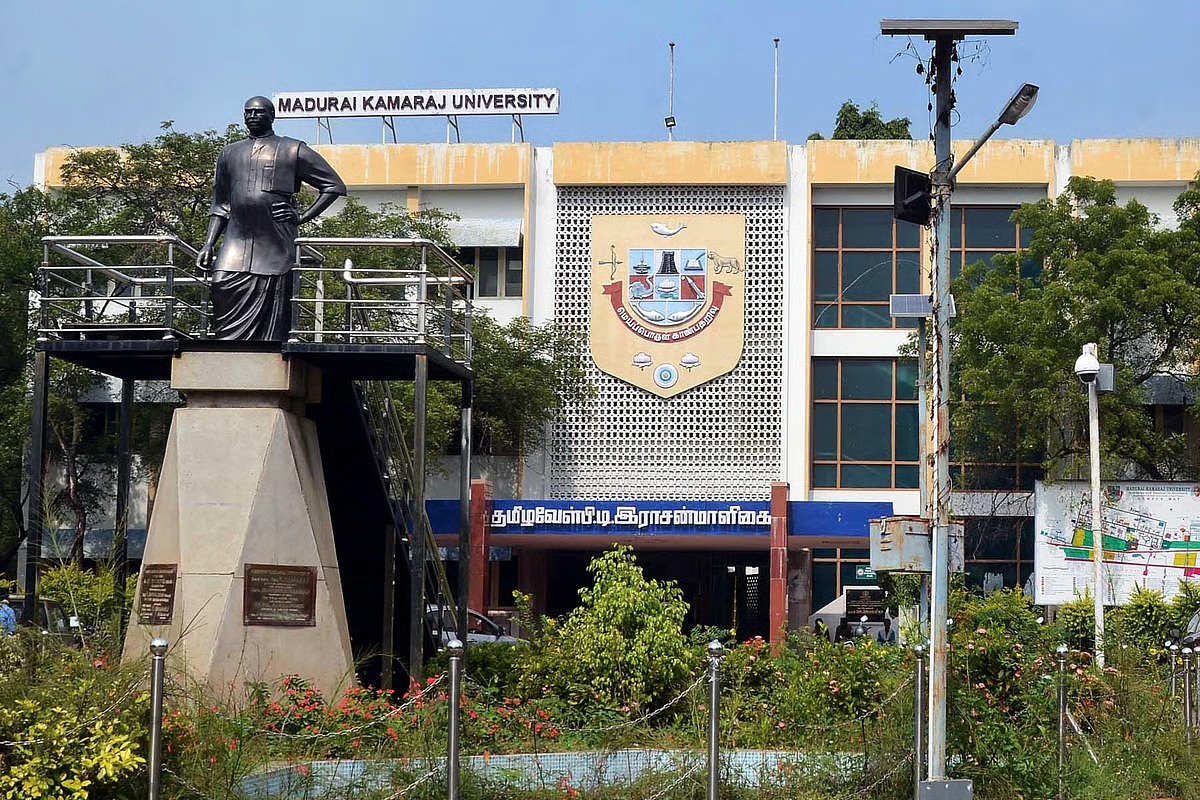@JUDGMENTTAG-ORDER
K.B.K. Vasuki, J.@mdashThe Writ Petition is filed against the Order of the first Respondent in his Letter No. OVM 7909/2006/UI dated 24-05-2006.
2. The brief, facts which are relevant for consideration herein are that the Petitioner''s company purchased property to an extent of 1.21 acres (1:24 acres as per patta) in Karappakkam Village, Neelankarai through registered sale deed, dated 04-05-2006. The sale consideration aggreed between the parties for the entire extent covered under sale deed is Rs. 2,72,25,000/- and the stamp duty payable for the same is Rs. 21,77,120/-. However, the Petitioner has due to some confusion with regard to the total extent covered under the sale transaction mistakenly paid a sum of Rs. 23,91,120/- and the document was duly registered on 04-05-2006, and the original document was also returned to the Petitioner.
3. Thereafter, the Petitioner made a detailed representation to the first Respondent Inspector General of Registration on 06-06-2006 for the refund of excess stamp duty paid to the tune of Rs. 2,14,000/-. The Petitioner in his representation explained in detail, about the sale consideration agreed between the parties, stamp duty payable, the excess stamp duty paid, and the circumstances under which the excess stamp duty paid etc., and has sought for refund of the amount on the ground that the excess amount was paid inadvertently and there was no legal necessity or liability to make payment of the same. The representation was disposed of by the first Respondent on 24-05-2006 on the ground that as if the excess stamp duty was not demanded or collected by the Registering Authority but the amount was paid voluntarily by the party and there is no provision in the Stamp Act to refund the excess Stamp Duty. However, the Registering Authority has permitted the Petitioner to apply to the District Registrar, Chennai South for the refund of the excess registration fees.
4. Aggrieved by the same, the Petitioner has come forward with this petition for the relief as stated supra.
5. The learned Senior Counsel for the Petitioner has seriously argued that though there is no provision in the Stamp Act for the refund of the excess amount paid by way of Stamp duty the relevant provisions of Indian Stamp Act (hereinafter referred to as "the Act") under Sections 31, 40(i)(a) empowers the District Collector to go into the question as to whether the instrument is sufficiently stamped or not and what is the duty chargeable upon any instrument and subject to the outcome of the same, the Revenue Authority is u/s 45 of the Act. empowered upon the application made by the party concerned to refund such stamp duty paid in excess of what is legally chargeable. The learned senior counsel has also relied upon Article 265 of the Constitution of India in support of his contention that the authority concerned is bound to levy or collect the taxes under due legal authority and no amount excess than what is payable can be collected by the authority concerned.
6. Per contra, the learned Additional Government Pleader for the Respondents would oppose the claim made in this petition by reiterating the same ground as mentioned in the impugned order.
7. Heard the rival submissions made on both sides.
8. The facts made available herein would support the claim made by the Petitioner that the stamp duty paid upon the instrument in question is excess than what is actually payable upon the same. The Petitioner has in his representation clearly given the calculation as to how the excess amount is arrived at. Further, the contention of the learned Senior counsel for the Petitioner that there is sufficient safeguard given in the Stamp Act, in and under which the party can approach the given District Collector for the determination of actual duty payable upon any instrument and the patty is entitled to, subject to the outcome of such proceedings, get the refund of the excess amount so chargeable. The relevant provisions of law under Sections 31, 40(1) A and Section 45 are for better appreciation and understanding re-produced therein:
Section 31. Adjudication as to Proper Stamp--
(1) When any instrument, whether executed or not and whether previously stamped or not is brought to the Collector and the person bringing it applies to have the opinion of that officer as to the duty (if any) with which it is bhargeable, and pays a fee of such amount not exceeding five rupees and not less than fifty paise) as the Collector may in each case direct, the Collector shall determine the duty (if any) with which, in his judgment, the instrument is chargeable.
(2) For this purpose, the Collector may require to be furnished with an abstract of the instrument, and also with such affidavit or other evidence as he may deem necessary to prove that all the facts and circumstances affecting the chargeability of the instrument with duty, or the amount of the duty with which it is chargeable, are fully and truly set forth therein, and may refuse to proceed upon any such application until such abstract and evidence have been furnished accordingly: (a) No evidence furnished in pursuance of this Section shall be used against any person in any civil proceeding, except in an inquiry as to the duty with which the instrument to which it relates is chargeable; and (b) Every person by whom any such evidence is furnished, shall, on payment of the full duty with which the instrument to which it relates, is chargeable, be relieved from any penalty which he may have incurred under this Act by reason of the omission to state truly in such instrument any of the facts or circumstances aforesaid.
Section 32. Certificate by Collector - 2
When such instrument is, in his opinion, not chargeable with duty, the Collector shall certify in manner aforesaid that such instrument is no so chargeable.
Section 40. Collector''s power to stamp instruments impounded--
(1) When the Collector impounds any instrument u/s 33, or receives any instrument sent to him u/s 38, Sub-section (2), not being an instrument chargeable with a duty not exceeding twenty paise only or a mortgage of crop (Article 41(a) of Schedule I) chargeable u/s 3 with a duty fifty paise or a bill of exchange or promissory note, he shall adopt the following procedure:
(a) if he is of opinion that such instrument is duly stamped or is not chargeable with duty, he shall certify by endorsement thereon that it is duly stamped, or that it is not so chargeable, as the case may be;
Section 45--Power to revenue authority to refund penalty or excess duty in certain cases--
(1) Where any penalty is paid u/s 35 or Section 40, the Chief Controlling Revenue-authority may, upon application in writing made within one year from the date of the payment, refund such penalty wholly or in part. (2) Where, in the opinion of the Chief Controlling Revenue-Authority, stamp-duty in excess of that which is legally chargeable has been charged and paid u/s 35 or Section 40, such authority may, upon application in writing made (within six months from the date of payment) refund the excess.
9. The combined reading of the provisions, of law under Stamp Act above referred to, in consideration of Article 265 of the Constitution of India "Taxes not to be imposed save by authority of law.--No Tax shall be levied or collected except by authority of law" would reveal that the District Collector u/s 31 of the Act is bound to determine the actual stamp duty payable upon instrument as and when any issue is raised in this regard and subject to the conclusion arrived at, and demand certificate as to whether particular instrument is not chargeable, with duty or not chargeable with such duty shall be issued by District Collector concerned and the Revenue Authority as and when the application is made is empowered to refund the amount. When that being the statutory obligation, the rejection of the Petitioner''s representation relating to the issue regarding the actual duty chargeable upon the instrument, without holding any enquiry will amount to failure of exercise of jurisdiction vested upon the authority concerned.
10. The learned Senior Counsel for the Petitioner has also by relying upon the definite expression chargeable u/s 2(6) of the Act react with Article 265 of the Constitution of India further argued that expression ''chargeable'' means the exact duty chargeable upon any instrument under law in force in India and no authority can collect any excess than what is chargeable upon the instrument. As rightly pointed out by the learned Senior Counsel for the Petitioner though the Petitioner has paid excess duty, the authority concerned is also bound to ascertain the actual stamp duty payable under law in force and is empowered to collect only the duty so chargeable. Had the Registering Authority at the time of registration proceedings of the document, in discharge of its statutory obligation duly ascertained the actual duty payable upon the instrument that would not have resulted in excess payment by the Petitioner and the excess amount would have been then-and-there refunded to the Petitioner. As the failure on the part of the Authority concerned is also one of the main reasons for payment of excess payment of stamp duty. The authority concerned cannot be now permitted to say that there is no provision in the Stamp Act and the authority concerned is not duty bound to refund the amount which is voluntarily paid by the party concerned. Such argument is devoid of any merit and deserves no acceptance.
11. In my considered view the Stamp Act contains inbuilt procedure to find out the exact duty payable and to refund the excess Stamp Duty paid by party, and the impugned order, rejecting "the Petitioner''s claim on the ground the Stamp Act has no provision to refund of the excess Stamp duty paid, is unfair, arbitrary, illegal and contrary to the specific provisions and the procedure laid down in the Act and amounts to failure to exercise the power vested under the Act.
12. In the result, the order impugned is hence set aside. The Petitioner''s application addressed to the first Respondent is directed to be forwarded to the third Respondent, namely, District Collector, Kancheepuram, who shall hold an enquiry after giving opportunity to the Petitioner for being personally heard either u/s 31 or u/s 40(1)(b) for determination of stamp duty payable upon the instrument and subject to the outcome of the same, the Petitioner, is as per law, entitled to get the refund of the amount, if any, by making an application to the appropriate authority, u/s 45 of the Stamp Act. The whole exercise shall be completed within a period of 12 weeks from the date of receipt of copy of this order.
13. The Writ petition is accordingly ordered. No costs.

